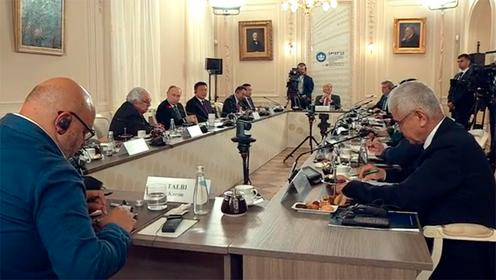Russian President Vladimir Putin has announced an agreement with Uzbek President Shavkat Mirziyoyev to jointly prepare labor migrants who wish to work in Russia. The initiative includes instruction in the Russian language, culture, and other areas, according to Putin’s press service.
The topic of labor migration was raised by the president during the St. Petersburg International Economic Forum in response to a question from Abdusaid Kuchimov, director general of Uzbekistan’s national news agency UzA.
Putin emphasized that Russia and Uzbekistan intend to work closely together on this issue. The two leaders, he said, will address migration matters jointly amid current challenges in the labor market.
“We agreed with Shavkat Miromonovich that we will tackle migration issues together. Why? Because we know what shape the labor market is in today. And you're facing some pressure as well,” Putin explained to the Uzbek journalist.
The Russian president expressed hope that both countries would organize programs to train prospective migrants wishing to work in Russia.
“This involves learning the Russian language, Russian culture, and so on,” Putin added.
He stressed the importance of engaging with young people, calling it a valuable and necessary effort. He noted that Saida Mirziyoyeva, adviser to the Uzbek president, recently visited Moscow and held meetings with officials from the Russian presidential administration and government.
“She is devoting, on the president’s behalf, considerable attention to fostering youth engagement and advancing this area. We’ve received specific proposals, and we will, of course, work on this together,” Putin assured.
Speaking more broadly about Russian-Uzbek cooperation, Putin said that relations between the two countries are developing steadily and successfully. Their collaboration has reached a high level, with numerous joint projects across various sectors — including nuclear energy.










